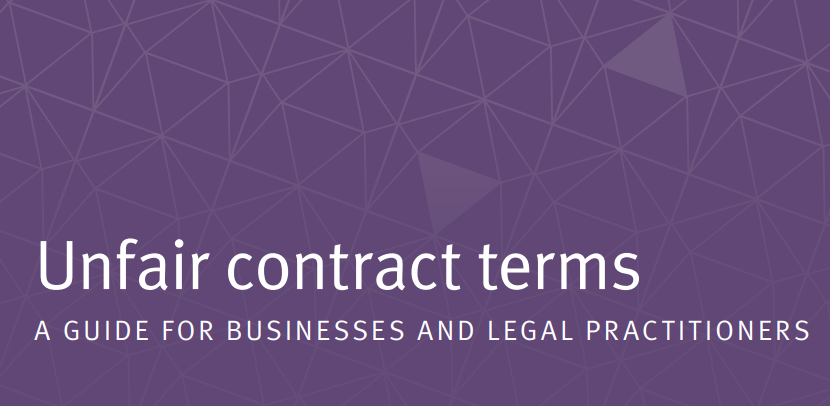What Are the Australian Consumer Laws
Having a clear understanding of Australian consumer laws is important for anyone looking to do business in Australia because having an understanding of these laws can help ensure you and your business are protected from any unfair or illegal behaviour.
Unfair contract terms
Typically, Australian consumer laws, which are enforced by the Australian Competition and Consumer Commission (ACCC) and the Australian Securities and Investments Commission (ASIC) protect consumers from unfair contract terms. Both of these agencies work together to ensure a consistent approach to compliance.
Unfair contract terms are those terms whaich are often hidden in the fine print or schedule of the contract that limit the obligations of one party, or that allow one party to terminate the contract without reason resulting in a significant imbalance in the contract obligations between the parties.
If a term is unfair, a court can declare it void which means typically, the court will balance the commercial interests of the business against the detriment to the consumer.
Moreover, the Australian government have announced that new legislation that will soon strengthen the law against further unfair contract terms in standard form contracts will be passed in the future. It will include changes to the UCT regime, have more stringent prohibitions against unfair contract terms, and will outline new civil penalties for subsequent breaches.
The proposed legislation is designed to give the ACCC more power to protect consumers including an increase in penalties for breaches of the competition and consumer law.
What is the ‘Standard form’ contract
Despite the fact that standard form contracts are widely used by businesses, they are also prone to contain such terms that are unfair. Australia’s Unfair Contract Terms legislation is designed to help prevent this.
The UCTL provides courts with a framework to determine whether a term in a standard form contract is fair allowing the court to take into account the relative bargaining power of the parties, whether the contract was pre-prepared and whether the purchasing party was given an opportunity to negotiate the terms.
While a term that sets a price is exempt from the “fairness test”, other terms can still be considered unfair such as penalty clauses which penalises one party and whether the contract was made available to the other party and accessible to consumers.
Although the Australian Consumer Law seeks to protect small business operators and consumers from unfair terms in standard form contracts it is still important for businesses to review contracts to ensure that they comply with the law.
The ACCC has outlined a number of areas in which consumers and small business operators may be at risk from unfair contract terms. These include contracts in the airline, travel, fitness, vehicle rental and telecommunications industries. The ACCC has also raised concerns about standard form contracts used by online traders.
Notes:
On buying a property and contract law.
Some examples of unfair terms in contracts
payments of compensation – what does this mean in a legal context
Whether you are a business or a consumer, you should be aware of the many examples of unfair terms in contracts under Australian consumer laws. Some examples include automatic renewal clauses, restrictions on reviews and customer feedback, and restrictive evidence terms. These terms may seem like a good idea, but they can actually impede the consumer’s ability to get a fair price and to take legal action against a business.
Definition: a term may seem to be an unfair term on its own,
An example of an automatic renewal clause is one that requires the customer to pay a fee to terminate a contract. This may seem reasonable as part of the overall contract, but the example is also the least likely to be considered an unfair term.
A more interesting example of an automatic renewal term is a clause that imposes a penalty for a contract to be cancelled. This type of term is unfair if the consumer has no choice. It is also not the most interesting example, but it may be considered the most significant.
Another example of a slur is a contract that requires the consumer to pay an extra fee to terminate the contract. It may be unfair to charge a consumer a fee for exercising a right, but it is not.
More on contract law specialist lawyers
A less enlightened example of an example of an unfair term is a term that limits the consumer’s ability to gather evidence. This may be an impressive feat, but it is also an example of a term that limits the consumer’s legal rights.
How to bring legal proceedings in a foreign jurisdiction.
Share on Facebook





